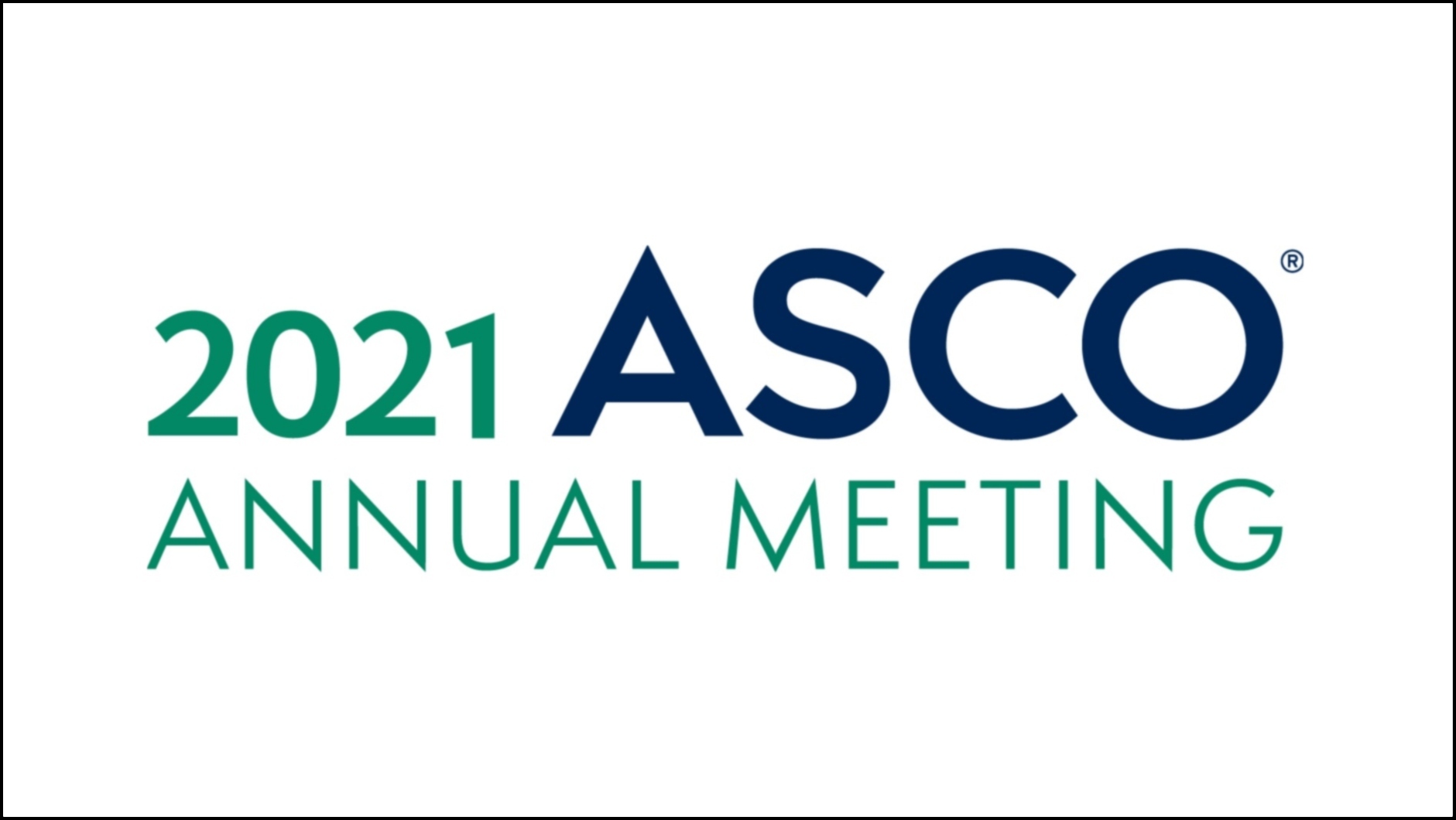
The past weekend saw the return of one of the biggest yearly events in cancer research, the American Society of Clinical Oncology (ASCO) Annual Meeting.
Cancer researchers and clinicians, patients and the press from all over the world attended the virtual event, gathering together in online spaces to hear about the latest cutting-edge developments in the field.
The theme of this year’s meeting was Equity: Every Patient. Every Day. Everywhere, and the meeting aimed to help identify ways to ensure that all patients have access to, and benefit from, the latest cancer advances and high-quality cancer care — from ground-breaking clinical trial results to emerging immunotherapy approaches.
Among the trials presented at this year’s conference, were two major trials led by ICR researchers.
Hope for targeted drug in treating breast cancer
On Sunday, Professor Andrew Tutt presented data from phase III trial OlympiA. The results showed benefits of the targeted drug olaparib against early-stage breast cancer in women with inherited mutations in their BRCA genes – DNA repair genes which, when mutated, are associated with increased risk of developing breast cancer.
Olaparib was first approved for use in women with ovarian cancer who had inherited faults in their BRCA genes, and is now also licensed in the US and EU for use in BRCA-mutant advanced breast cancer.
The new trial intended to follow patients for 10 years, and is ongoing, but showed a significant effect at 2.5 years so was reported early. It showed a remarkable response to olaparib, cutting the risk of breast cancer returning in a cohort of women with high-risk, early stage breast cancer by 42 per cent.
The findings have potential to change practice, and ICR researchers are hopeful that olaparib will soon be approved by medicines regulators and made available for patients with early-stage breast cancer.
In an interview with BBC Radio 4’s Today Programmeon Friday, Professor Andrew Tutt emphasised the significance of the findings in providing a new treatment approach for women with BRCA mutated early-stage breast cancer. The story also received widespread coverage in national newspapers including The Times, The Daily Telegraph, The Guardian, The Financial Times, The Independent and the Daily Mail, as well as over 170 regional newspapers, with many journalists hailing it as a ‘major breakthrough’.
"We can now affordably test for a genetic form of breast cancer"
Institute for Cancer Research's Prof Andrew Tutt on trials of using the drug olaparib after chemotherapy to reduce the chances of the disease recurring for women with a gene which puts them more at risk #R4Today
— BBC Radio 4 Today (@BBCr4today) June 4, 2021
‘Seek and destroy’ prostate cancer drug extends lives
Also presented on Sunday were results from the VISION trial, co-authored by Professor Johann de Bono – which looked at a new, high-tech treatment for prostate cancer.
The study showed the new drug, which acts like a missile to deliver a highly targeted dose of radiation to cancer cells while leaving healthy cells unharmed, extended patients’ lives by four months on average when added to the standard of care.
The drug, known as 177Lu-PSMA-617, uses a ‘homing device’ to detect the presence of a molecule called prostate-specific membrane antigen (PSMA) which is found on the surface of cancer cells. Once in contact, it delivers a dose of radiation, killing the cancerous cells.
Professor de Bono hopes the findings will change the standard of care for some men with advanced prostate cancer, and this study was also covered by several national newspapers, including The Times, Daily Mail and The Daily Telegraph.
💊 Researchers also found that the drug kept patient’s cancers in check for longer, a metric known as “progression-free survival”, than a normal course of treatment https://t.co/TPfppPNIy5
— The Telegraph (@Telegraph) June 4, 2021
Promising immunotherapy results for melanoma
Professor James Larkin, Consultant Medical Oncologist at The Royal Marsden, and Professor in the Division of Clinical Studies at the ICR, presented two studies highlighting the benefits of immunotherapies nivolumab and ipilimumab, for different patients with melanoma.
The latest results from the global Checkmate 067 trial show that nearly half of patients with stage 4 melanoma are still alive more than six years after being treated with nivolumab and ipilimumab in combination, with an overall survival rate of 49 per cent.
Results from another trial, Checkmate 238, revealed nivolumab or ipilimumab reduced rates of recurrence of in-transit melanoma, a form of stage 3 melanoma.
First-in-human study of new prostate cancer drug
These are just three of the many studies involving ICR researchers that were presented at the ASCO conference over the weekend.
Also presented at the conference by Professor Johann de Bono, and highly talked about on Twitter, were results from a first-in-human study of TAS3681, a new drug which acts by blocking androgen receptors in metastatic castration-resistant prostate cancer.
Johann DeBono @ICR_London presents data on TAS3681 - an AR antagonist - that has activity in pts previously treated with abi or enz and at least one prior line of chemotherapy #ASCO21 #CleClinicCancer @PCF_Science @ASCO
— Nima Sharifi (@NimaSharifiMD) June 4, 2021
The study reported positive safety results for the drug, and indicated it could be effective in patients whose cancer has become resistant to abiraterone and/or enzalutamide, two other drugs used to treat advanced prostate cancer.
It is brilliant to see so many exciting new advances aimed at improving treatment for cancer patients.
As ever, the ASCO conference presented a unique opportunity for cancer researchers to share results and ideas with colleagues across the globe.
Though virtual again this year, much valuable discussion took place on social media platforms around the presentations and findings. Hopefully, ICR researchers have inspired others, and come away from the conference feeling inspired themselves, with fresh ideas for their own research – we will eagerly await the next big breakthrough.
comments powered by